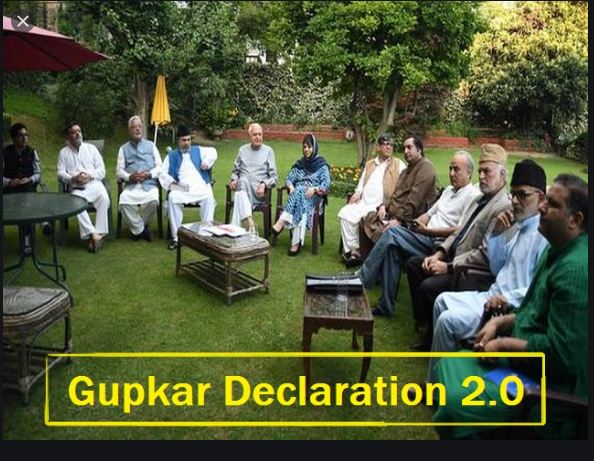Virendra Pandit
New Delhi: Out of office, power, and pelf for nearly 18 months now, former Jammu and Kashmir Chief Ministers Mehbooba Mufti and Dr. Farooq Abdullah, who is trying to regain some political relevance after release from incarceration, are apparently provoking the Centre to send them back into house arrest, even as the third former CM Omar Abdullah visited Kargil in Ladakh to regrow his dead party.
To nip their ‘anti-national’ attempts in the bud, the J&K police had, on Thursday, locked Mehbooba’s People’s Democratic Party (PDP) office in Srinagar and arrested some of her supporters for trying to take out a rally aimed at vitiating the peaceful Valley on the Article 370 issue.
On Friday, similarly, Dr. Abdullah was prevented from leaving his residence ostensibly to offer prayers at the Hazratbal shrine in Srinagar, his Lok Sabha constituency, on the occasion of Miladun-Nabi, the birth anniversary of Prophet Muhammad.
Condemning the step, his party, Jammu and Kashmir National Conference (JKNC), tweeted, “J&K administration has blocked the residence of Party President Dr. Farooq Abdullah and stopped him from offering prayers at Dargah Hazratbal. JKNC condemns this infringement of fundamental right to pray, especially on the auspicious occasion of Milad Un Nabi SAW.”
J&K administration has blocked the residence of Party President Dr Farooq Abdullah and stopped him from offering prayers at Dargah Hazratbal. JKNC condemns this infringement of fundamental right to pray, especially on the auspicious occasion of Milad Un Nabi SAW.
— JKNC (@JKNC_) October 30, 2020
Foe-turned-friend Mehbooba Mufti also condemned the move saying it was a gross violation of their rights. “Preventing Farooq Sahab from offering prayers on Milad Un Nabi SAW at Hazratbal exposes GOI’s deep paranoia and their iron fist approach towards J&K. It’s a gross violation of our rights and is highly condemnable,” she tweeted.
Preventing Farooq sahab from offering prayers on Milad Un Nabi SAW at Hazratbal exposes GOI’s deep paranoia & their iron fist approach towards J&K. Its a gross violation of our rights & is highly condemnable
— Mehbooba Mufti (@MehboobaMufti) October 30, 2020
Amid these developments, some leaders of the seven-party rump called People’s Alliance for the Gupkar Declaration (PAGD) is trying to create a formal structure ahead of their “constitutional battle” for restoring to people “the rights they had before 5th of August 2019”.
Abolition of the “special status” of Jammu and Kashmir, granted by the Articles 370 and 35-A, has, since August 2019, made all politicians and their parties irrelevant. J&K is now a Union Territory where re-establishment of the Assembly is a distant dream. Ladakh is now a separate UT, with not even a promise given for an Assembly. Both these UTs are now directly administered by the Centre, through Lieutenant-Governors.
Under these circumstances, and especially when party-less local bodies’ elections at the grassroots level, are the new form of democracy, old political parties are trying to make themselves relevant again.
They do not, however, know where to begin afresh.
That is why Dr. Abdullah tried to garner some support by stating that even China’s help could be sought for the restoration of the state’s special status.
That is why he tried to reach out to the Muslim masses at Hazratbal.
That is why Mehbooba Mufti announced not to unfurl the Tricolour until allowed to hoist the J&K’s erstwhile “flag”—would she take the oath of any office in the future by the same Constitution of India she is challenging now? How fragile her position is in her own party became clear when three senior leaders quit PDP on the flag issue.
And that is why Omar is trying to stir up some support in Ladakh, now in a long military face-off with China on the border issue.
A delegation of the People’s Alliance for Gupkar Declaration met leaders of the Kargil Democratic Alliance in Kargil this afternoon. All of us united that the pre August 5th, 2019 position must be restored pic.twitter.com/wn60AnfzzB
— Omar Abdullah (@OmarAbdullah) October 30, 2020

